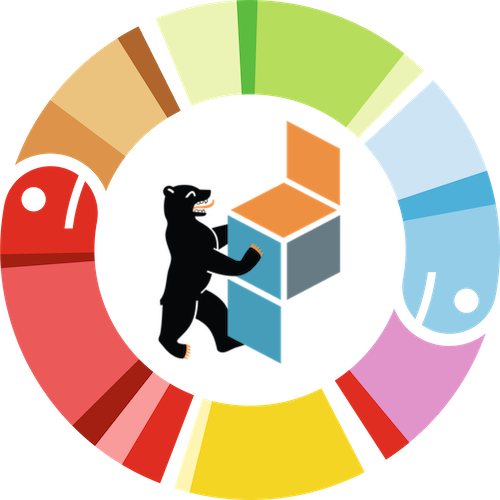Science Session List
Are you sure about that?! Uncertainty Quantification in AI
Florian Wilhelm
Artificial Intelligence, Deep Learning, Data Science, Machine Learning, ScienceAre you sure about that?! Uncertainty Quantification in AI helps you to decide if you can trust a prediction or rather not.
Automated Feature Engineering and Selection in Python
Franziska Horn
Data Science, Machine Learning, Science, Data Engineering, StatisticsAutomated feature engineering and selection in Python with the autofeat library.
Birds of a feather flock together - Tracking pigeons with Python and OpenCV
Neslihan Edes
Computer Vision, IDEs/ Jupyter, ScienceIn this talk I want to demonstrate how to leverage existing Open Source technologies to implement basic movement tracking use cases.
CANCELLED: First steps in Julia
Felicia Burtscher
Artificial Intelligence, Algorithms, Deep Learning, Data Science, Networks, Machine Learning, Science#julia_introduction. why julia is better than python. machine learning made eady with juliabox.
Chips Made From Python
Dan Fritchman
Microcontrollers, Parallel Programming, Science, MakersChips Made From Python - Hardware description in Python (and friends), and their role in modern silicon
Deep Learning for Healthcare with PyTorch
Valerio Maggio
Artificial Intelligence, Deep Learning, Machine Learning, ScienceThis tutorial provides a general introduction to the PyTorch Deep Learning framework with specific focus on Deep Learning applications for Precision Medicine and Computational Biology.
Equivariance in CNNs: how generalising the weight-sharing property increases data-efficiency
Marysia Winkels
Artificial Intelligence, Algorithms, Computer Vision, Deep Learning, Data Science, Machine Learning, ScienceEquivariance in CNNs: how generalising the weight-sharing property increases data-efficiency
Leveraging ML to obtain fine-grained (yet reliable) causal estimates from A/B tests and experiments
Maximilian Eber
Data Science, Machine Learning, Science, StatisticsHow to use machine learning to evaluate randomised experiments and A/B tests
Leveraging the advantages of Bayesian Methods to build a data science product using PyMC3
Korbinian Kuusisto
Algorithms, Business & Start-Ups, Data Science, Machine Learning, Science, StatisticsHow can one leverage the power of Bayesian methods to build a successful data science product?
Machine learning with little data - from digital twin to predictive maintenance
Andreas Hantsch
Deep Learning, Machine Learning, ScienceThis talk is about the coupling of a digital twin model and a machine learning predictive maintenance algorithm in order to be able to detect anomalies in the operation of a not well-known hardware system.
Quantum computing with Python
James Wootton
Algorithms, Infrastructure, Microcontrollers, Science, APIsEvery Python user can play with one of the world's most advanced technologies: quantum computers. This session will tell you how you can and why you should.
Should I stay or should I go? Optimal exercise decisions using the Longstaff-Schwartz algorithm
Benedikt Rudolph
Algorithms, Business & Start-Ups, Data Science, Science, StatisticsLearn about a simple least-squares approach to evaluate financial exercise options and make optimal exercise decisions.
Static Typing in Python
Dustin Ingram
ScienceIn this talk, we'll discuss the advantages and disadvantages to a static type system
Take control of your hearing: Accessible methods to build a smart noise filter
Peggy Sylopp, Aislyn Rose
Artificial Intelligence, Algorithms, Computer Vision, Deep Learning, Data Science, Machine Learning, ScienceControl what you hear with deep learning and open audio databases. The developer and manager of \\NoIze//, a project supported by Prototype Fund, share what’s helped them build an open source smart, low-computational noise filter in Python.
Using Overhead Video Capture to Analyse Grouping Behaviour of Dancers in a Silent Disco
Nelson Mooren
Computer Vision, ScienceI built upon Python's OpenCV library to detect locations of dancers in a silent disco, using their headphone lights as a proxy, and performed network analysis to investigate their grouping behaviour based on the playlists people were listening to.
Why you should (not) train your own BERT model for different languages or domains
Marianne Stecklina
Artificial Intelligence, Deep Learning, Data Science, Natural Language Processing, Machine Learning, ScienceLanguage models like BERT can capture general language knowledge and transfer it to new data and tasks. However, applying a pre-trained BERT to non-English text has limitations. Is training from scratch a good (and feasible) way to overcome them?
Filter
